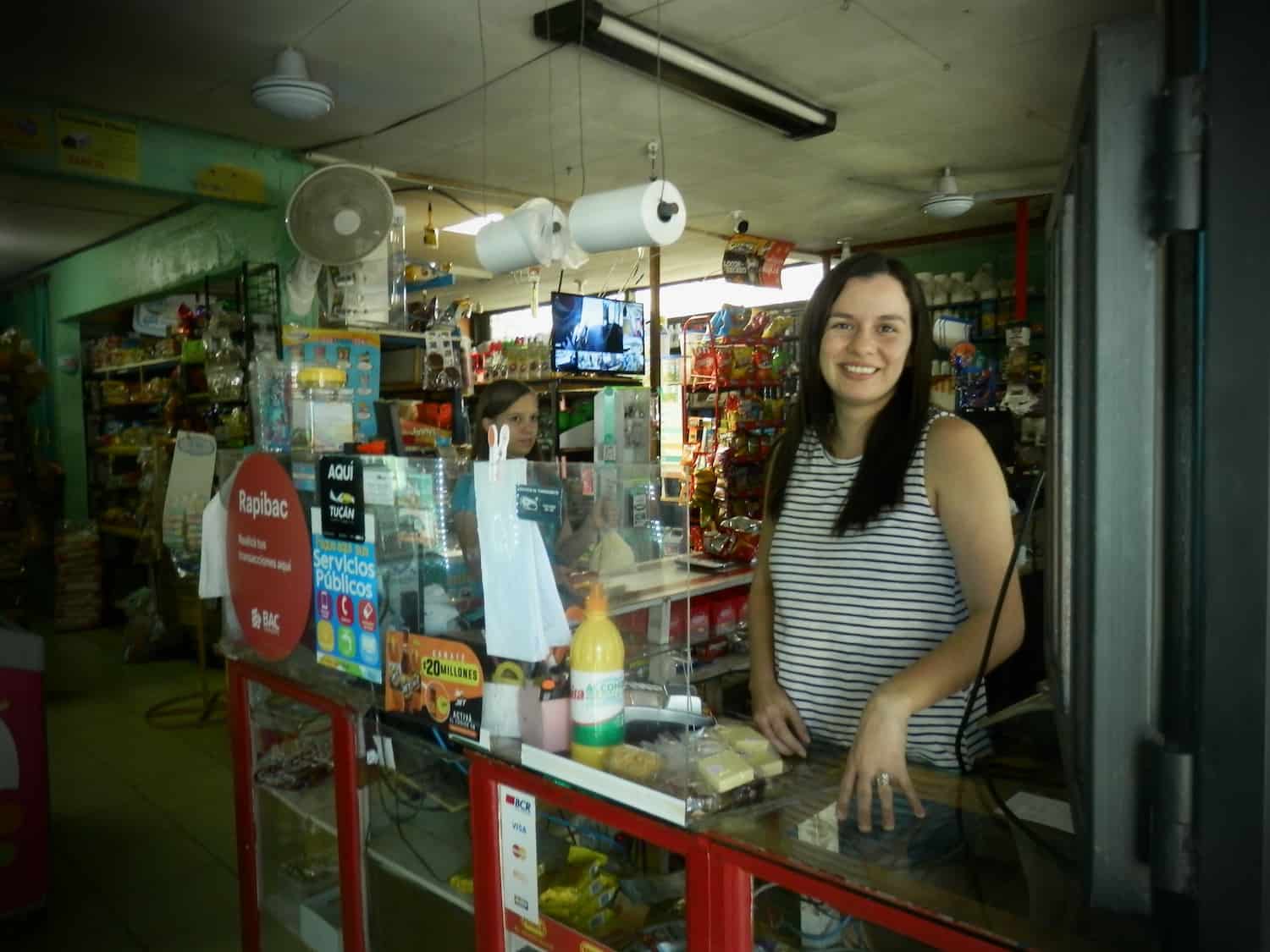Most every small town and working-class urban barrio has a corner convenience store – known as a pulperia in Costa Rica. There are various theories as to the origin of this word. The historian and chronicler Inca Garcilaso de la Vega mentions the word in his writings dating from the 16th century Peru. Some say it was because fruit pulp was commonly sold in these places. My personal favorite is also the one described by most Spanish etymologists as the least likely:
That it is derived from the Spanish word for Octopus (pulpo). As most early pulperias had all of the goods behind the counter, and the customers came to the counter to place their orders, the owner had to be like an octopus, reaching many directions at once to fill the orders.
This type of pulperia has disappeared from many parts of Costa Rica as more grocery shopping options have become available. But there are still some around, where you stand at a counter, either present a pre-written list or tell the counter person – usually the owner or a member of the owner’s family – what you want item by item.
All of the items are behind the counter where only the staff can reach them. Once your order is complete, the amount will be totaled and you will pay, cash only. Most village and barrio pulperias extend credit to their regular customers, with the agreement that payment will be made when the customer’s paycheck comes in.
This could be weekly, bi-weekly, or monthly. In my neighborhood, there is still one of the old-style pulperias, which is actually the front room of a house that was converted into a small store. Customers wait under a small roof outside, separated from the goods by a large wooden counter.
The other ones in my barrio are now small convenience stores that once upon a time were the classic pulperia but have evolved into self-service stores where you gather your own purchases and pay a cashier.
Some are more organized than others. The two I frequent are at opposite ends of the spectrum. One is well organized, with refrigerators and freezers in the back, household items, cleaning supplies, soaps, etc., together in one section away from any types of food. They also have over 20 types of coffee. A father and his two adult sons and daughter run it.
The other is a few hundred meters down the road, and I hesitate to include it in the class of pulperia because they sell beer and liquor, which is the main reason they get my business. (The classic pulperia does not offer any type of alcoholic beverages. If they do, it is on the sly, and you need to know the owner).
But this store is otherwise a disorganized mess. The shelves are stocked with no semblance of logic or order; walking down an aisle you might find candy next to dog food next to laundry detergent next to bread and tortillas next to tampons next to cookies next to rat poison. It has gone through several changes in ownership over the years.
Like I said, I mainly shop there for beer. I have always preferred making some purchases – coffee, eggs, milk, bananas – with my local pulpero because I like to spend my money as locally as possible. In the small towns and barrios and hardscrabble urban neighborhoods, it is a good thing to keep some cash flowing within the community because more and more, those small mom and pop places are being phased out in favor of big supermarkets, many of which are not locally owned.
And it is sad but true that every time another pulperia closes its doors, its customers and their money will be going out of the small towns and barrios and into the coffers of large companies whose ownership is likely based far from town. So if you have a pulperia in your area, spend some money there, as it is another piece of the original Costa Rica that is slowly fading away.






